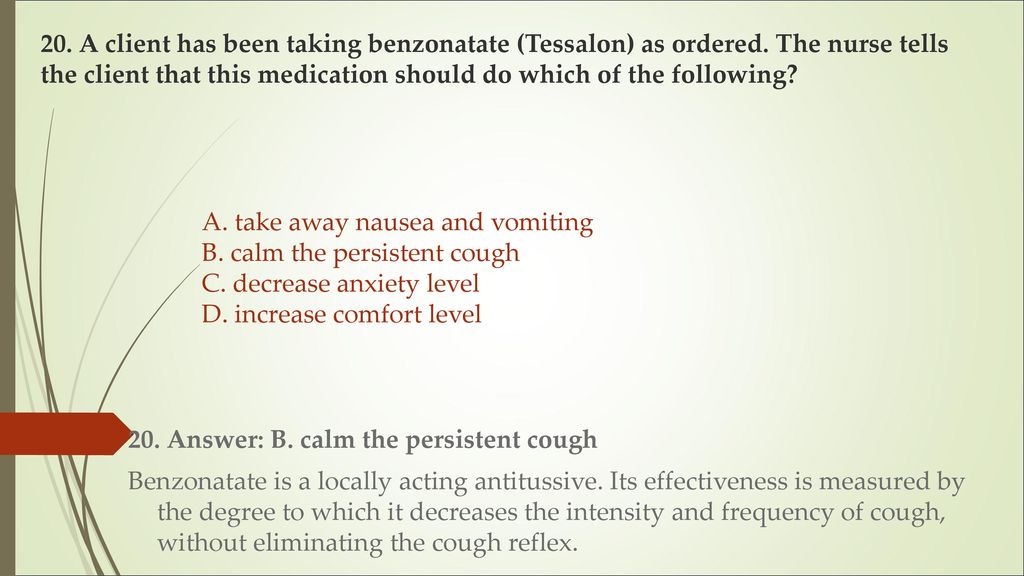Can i test positive for pregnancy after a miscarriage
How to tell if a miscarriage has happened
If you’ve heard the term miscarriage, you probably know that it means the loss of a pregnancy before 20 weeks’ gestation. Miscarriage is something that no one wants to think about during early pregnancy, but 10-20% of all known pregnancies end in miscarriage. Being able to recognize miscarriage symptoms and knowing what to do next can help you be more prepared in case one happens.
Miscarriage symptoms
A miscarriage can happen suddenly or gradually, which means that you may not notice any particularly early symptoms of a miscarriage. But no matter how fast it happens, key symptoms include:
- Pink, red or brown vaginal bleeding or spotting
- Cramps or pain in the lower abdomen
- Passing tissue or blood clots from the vagina
Every miscarriage is different. The heaviest bleeding and cramps may be over within a few hours, but bleeding could continue off and on for as long as three weeks. And although most people experience cramps, a miscarriage isn’t always painful.
Both vaginal spotting and mild cramps are common during early pregnancy, so it’s possible to have a miscarriage and not know it. This is why you should call your care provider if you experience any of the above symptoms once you’ve confirmed your pregnancy.
When do miscarriages happen?
Most miscarriages happen during the first trimester, which is the first 12 weeks of pregnancy. If you’re not tracking your menstrual cycle or fertility, it’s possible to mistake an early miscarriage for a period. And although miscarriages can still happen after the first trimester, the chances drop significantly – to around 3-4%. It’s also possible to have a pregnancy loss after 20 weeks, but this is referred to as a stillbirth. It’s treated differently and is much less common than a miscarriage.
Will a pregnancy test be negative after a miscarriage?
It takes time for your hormones to return to their pre-pregnancy levels after a miscarriage. The amount of the pregnancy hormone human chorionic gonadotropin (hCG) may still be high enough to trigger a positive result on a pregnancy test for several weeks after a miscarriage.
The amount of the pregnancy hormone human chorionic gonadotropin (hCG) may still be high enough to trigger a positive result on a pregnancy test for several weeks after a miscarriage.
What causes miscarriages?
One of the most important things to know about miscarriages is that they’re often caused by things that you have no control over, including:
- Chromosomal abnormalities: This is when a fertilized egg has too many or too few chromosomes. Chromosomal abnormalities account for around half of all miscarriages and are usually random. They can either prevent the embryo from developing or from forming in the first place.
- Uterine or cervical issues: In some cases, conditions related to the uterus or cervix can interfere with embryo development and lead to miscarriage. This includes conditions that create growths or scar tissue in the uterus like endometriosis, pelvic inflammatory disease, and cervical insufficiency – which is when the cervix opens too early, typically in the second trimester.

- Infections: Untreated sexually transmitted infections (STIs) can cause you to miscarry. It’s important to get tested for STIs before you get pregnant, as you can have an infection without symptoms. You may also miscarry if you become infected with listeriosis, which is a type of food poisoning. This is why it’s recommended that you avoid eating certain foods during pregnancy.
In addition to the above, there are other factors that can increase your risk of miscarriage and other pregnancy complications. These risk factors include:
- Age: Pregnancy after age 35 comes with a higher risk of miscarriage. This is because as you age, eggs with extra or missing chromosomes become more common.
- Environmental exposure: Working around or otherwise being exposed to radiation, toxins or contaminants.
- Health conditions: Certain health conditions, like autoimmune disorders, thyroid disorders, severe diabetes and being over- or underweight.

- Lifestyle choices: Smoking, drinking alcohol and using drugs.
- Previous miscarriages: Having two or more miscarriages in a row can be a sign that you have a higher chance of miscarrying in general.
What does NOT cause a miscarriage
Physical activity and sex have not been linked to miscarriage. But if you’re ever unsure about whether something is safe to do during your pregnancy, talk to your care provider.
Some studies have shown that stress or high caffeine intake during pregnancy may increase miscarriage risk. More research is needed, but it’s recommended that you try to manage your stress as best you can, and keep your daily caffeine intake below 200 milligrams.
What to do if you have a miscarriage
Again, if you notice potential symptoms of a miscarriage, call your care provider. They will want to confirm the miscarriage and make sure that you aren’t at risk for heavy blood loss or infection. This is usually done with a pelvic exam and an ultrasound.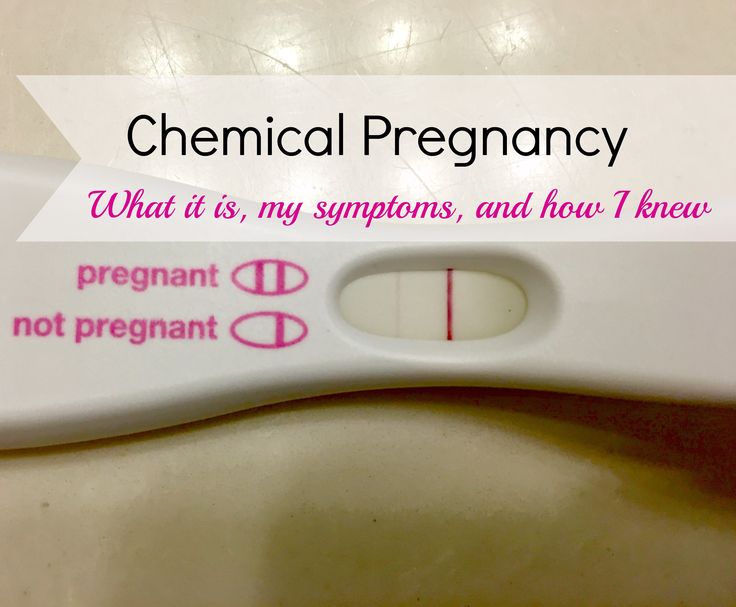
Miscarriages frequently resolve on their own without any need for treatment. It may take a few days to pass all of the tissue, and you may have moderate bleeding that lightens over the course of a couple weeks. Seek immediate medical treatment if you have heavy bleeding that does not lighten, fever, weakness or other signs of infection.
Medical treatment for a miscarriage
There’s no treatment that can stop a miscarriage. Instead, miscarriage treatment focuses on preventing excessive blood loss and infection, which can happen if the uterus isn’t completely cleared of tissue. Once a miscarriage has been confirmed, options for treatment may include:
- Medication: Medication can be used to speed up the passing of pregnancy tissue.
- Surgery: If there’s leftover tissue in the uterus or signs of heavy blood loss or infection, a minor surgery called dilation and curettage (D&C) may be performed. In a D&C, the cervix is dilated so that the remaining tissue can be gently removed.
 This option can also be chosen based on preference.
This option can also be chosen based on preference.
Tips for recovering from a miscarriage
- To prevent infection, avoid putting anything in your vagina during a miscarriage, and for two weeks afterwards. This means avoiding sexual intercourse and using pads instead of tampons.
- If you’re having painful cramps during or after a miscarriage, take acetaminophen – follow the label instructions.
- Your iron levels may drop as a result of the bleeding. To offset this and support your body’s blood production, eat a healthy diet that’s high in iron and vitamin C. Iron can be found in red meat, shellfish, beans and leafy green vegetables. Vitamin C can be found in citrus fruit, kiwis, bell peppers and many other vegetables.
- A miscarriage can be an emotionally difficult time, and there’s no right or wrong way to feel. It’s common to experience a variety of emotions, including mood swings, grief, anger and loneliness. Talk with family, friends or a counselor if you’re feeling overwhelmed or need support after a pregnancy loss.
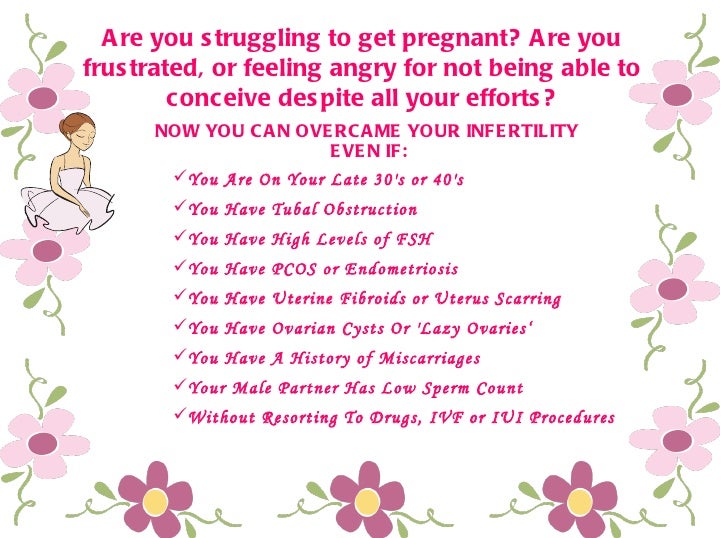
- Be kind to yourself. The physical and emotional toll of a miscarriage can be draining. It’s okay to take a step back from your regular activities if you need to rest and recuperate.
- Once your miscarriage has been confirmed, go to any recommended follow-up appointments, and report new or worsening symptoms to your care provider as soon as possible.
Can you avoid a miscarriage?
After a miscarriage, it’s normal to wonder if you could have done anything differently. Remember, a miscarriage is rarely anyone’s fault, and there’s no sure way to prevent one from happening. That said, there are a few healthy lifestyle choices you can make to minimize your risk:
- If you smoke, drink alcohol or use drugs, quit as soon as possible.
- Get tested for STIs.
- Talk to a medical professional about any health conditions you haven’t had treatment for.
- Stick to any treatment plans or other methods you’ve already been given for managing health conditions.

- Get enough physical activity.
- Eat a balanced diet.
Keep your risk low
If you aren’t pregnant yet, one of the best things you can do to minimize your risk of miscarriage and other complications is to make a preconception appointment. This is an opportunity for your care provider to review your medical and lifestyle histories, and make recommendations that can give your pregnancy the healthiest possible start.
And if you’re already pregnant, stick to your prenatal appointment schedule. Your prenatal appointments ensure that you and your little one are getting all the care you need. Plus, these appointments give your care team the chance to catch signs and symptoms of complications before they affect your pregnancy.
Make a preconception appointment or a prenatal appointment.
Pregnancy Tests After Miscarriage - How Long Until It’s Negative?
When a pregnancy ends suddenly, like in the case of miscarriage, it can take some time for your hormones to return to normal and recalibrate. The hormone measured by pregnancy tests, hCG (human chorionic gonadotropin) is only made in high levels while you’re pregnant and these levels usually rise in a predictable way.
The hormone measured by pregnancy tests, hCG (human chorionic gonadotropin) is only made in high levels while you’re pregnant and these levels usually rise in a predictable way.
But what happens when a pregnancy ends? In this article, we’ll be taking a closer look at the ins and outs of pregnancy tests after miscarriage. We’ll take a look at what hCG levels can look like, how long it can take until they are negative, and trying to conceive again. We’ll also cover some of the most frequently asked questions about taking pregnancy tests after miscarriage and what to expect to be ready for another pregnancy.
hCG levels after miscarriage
Testing for the presence of hCG in urine is one of the primary ways we determine if an individual is pregnant. Although you may find trace amounts in your system at other times, hCG is really only produced in high levels when you’re pregnant and peaks around the 8th to 11th week of pregnancy. When you miscarry, your body will halt the production of hCG and levels will gradually return to their pre-pregnancy baseline.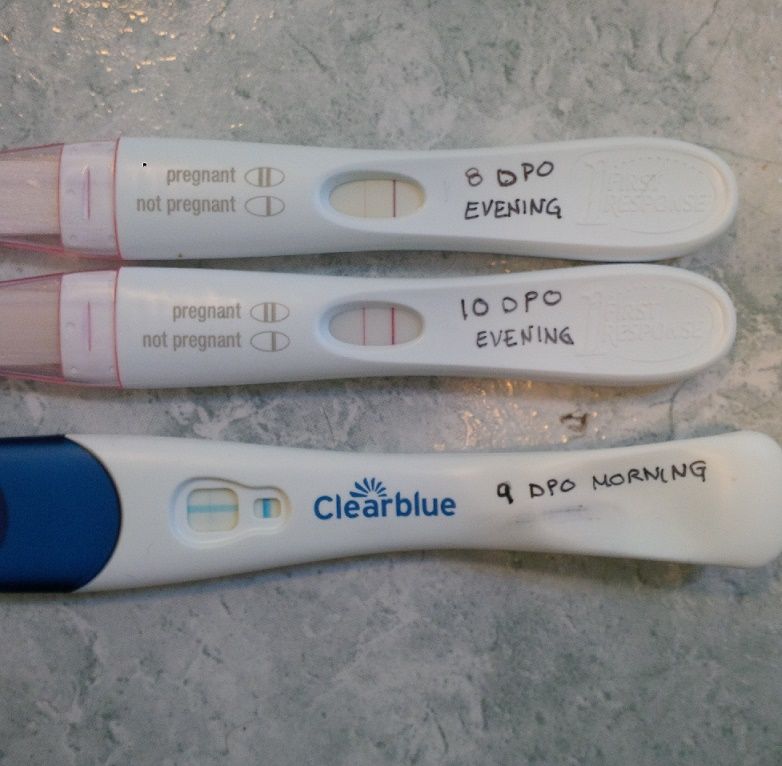
While there is a range of what is considered “normal”, hCG levels can vary depending on the individual and the stage of pregnancy. Accordingly, how long hCG stays in your system will depend on how far along you were in your pregnancy as well as other lifestyle factors. The exact levels to expect will depend on how high hCG levels were immediately prior to the loss. If hCG remains elevated, this could be a sign that something more serious is going on (like in the rare case of a molar pregnancy) and should be investigated by your doctor.
How long will a pregnancy test be positive after a miscarriage?
How long it takes for your hCG level to gradually return to normal will depend on how far along you were in your pregnancy and what kind of pregnancy you had. Levels may persist even after miscarriage but will generally start to fall and return to their baseline or pre-pregnancy levels, which can take up to 6 weeks. If your pregnancy ended very early you will likely have low levels of hCG whereas if your pregnancy was further along you will have more in your bloodstream.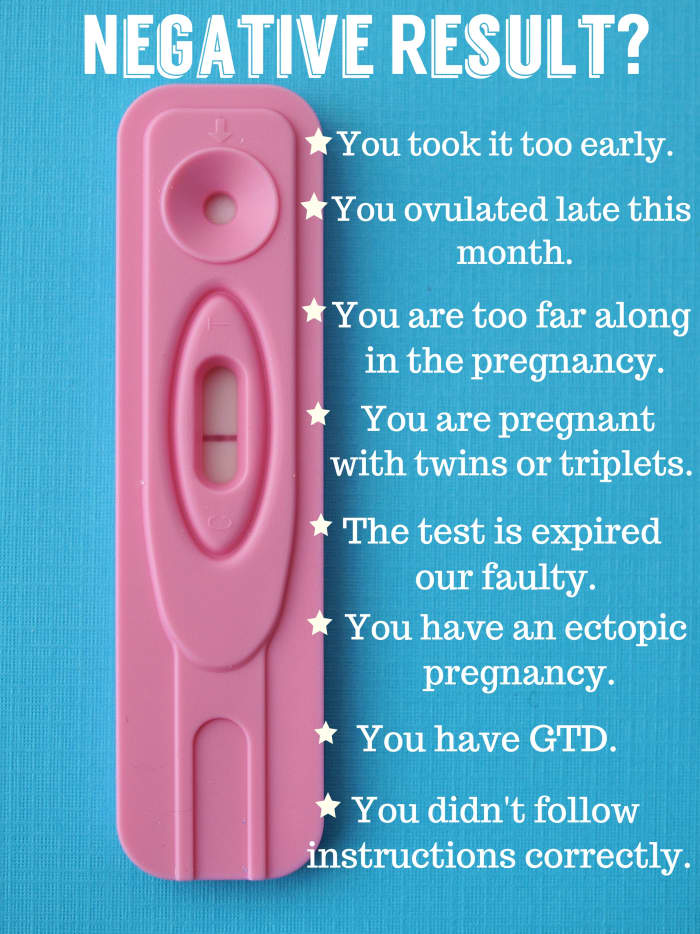
Early miscarriage
An early pregnancy loss, or one that occurs shortly after implantation, means your hCG levels were lower and will likely return to baseline in less time. Even though levels of the hormone were being produced at a rate high enough to be detected on a pregnancy test, they will fall rapidly without successful implantation. It may only take days for your hCG levels to return to normal after early miscarriage.
Miscarriage later in pregnancy
Your hCG levels double every 2-3 days at the beginning of a pregnancy and peak around week 10. A miscarriage that occurs later in pregnancy means you will have more hCG in your blood and levels may naturally take longer to return to a pre-pregnancy baseline.
Trying to get pregnant again
Traditionally, many doctors recommend waiting several months before trying to conceive again after a miscarriage. Although there is no medical evidence to wait this long, each situation is different and will depend on multiple factors including your personal medical history.
How long should you wait?
Miscarriage can take both a physical and emotional toll and it’s important to wait until your mind and body are both fully ready. Physically, once hCG is back to its pre-pregnancy levels and ovulation has resumed, your body is able to get pregnant again. Although recent research has debunked the need for an extended wait, it’s important to allow your body to heal and for your pregnancy hormones to normalize.
Why should you wait?
Allowing your body to heal is an important reason to wait before getting pregnant again.
Aside from giving you time to emotionally process the events, it gives your body a chance to return to optimal conditions to support a new pregnancy.
Allowing body to return to pre-pregnancy state
It can take time for your body to recalibrate and return to its pre-pregnancy state. As your hormones regulate, your menstrual cycle will gradually return to a normal pattern and you can track your cycle for ideal timing.
Avoiding false positives pregnancies
It can take weeks or months for your hormones to return to normal after a pregnancy loss. Because pregnancy tests detect hCG in urine, your test results may be inaccurate if your hormones haven’t fully returned to baseline.
If there is still hCG in your system from the previous pregnancy, you could get a “false positive” and think you’re pregnant when you’re not. Not waiting long enough before trying again can make it harder in the long run by making testing inaccurate and possibly complicating your care (more on your fertility after a miscarriage here).
FAQs about pregnancy tests after miscarriage
Have questions about pregnancy tests after miscarriage? We’ve answered some of the most frequently asked questions for you.
Do hCG levels need to drop to 0 before trying to conceive again?
hCG can remain in your bloodstream for weeks after a miscarriage and how long it takes for levels to drop to 0 will vary from woman to woman.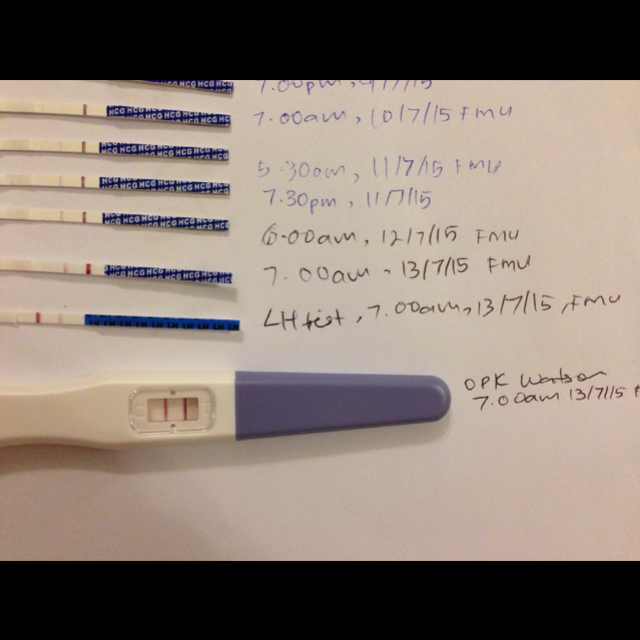 Women used to be advised to wait at least three months before getting pregnant again, but experts now agree that there is no reason to delay pregnancy after you have experienced an early pregnancy loss. Ask your doctor how long you should wait in your situation since recommendations will depend on multiple factors unique to your health.
Women used to be advised to wait at least three months before getting pregnant again, but experts now agree that there is no reason to delay pregnancy after you have experienced an early pregnancy loss. Ask your doctor how long you should wait in your situation since recommendations will depend on multiple factors unique to your health.
Can I take a pregnancy test to see if I miscarried?
Because hCG can remain in your bloodstream for weeks following a pregnancy loss, it is not recommended to use a pregnancy test to see if you miscarried. You may still get a false-positive test reading from the hCG in your system.
If you have a pregnancy test show a negative result after previously receiving a positive one, it can be a sign of a chemical pregnancy or early miscarriage. However, it’s best to not rely on a home pregnancy test for this kind of information and instead see a doctor.
Can you ovulate with hCG in your system after a miscarriage?
HCG naturally suppresses ovulation by ensuring the corpus luteum continues to produce progesterone throughout the first trimester of pregnancy. With hCG in your system, it will suppress your normal ovulation process and as your hormones regulate, your cycle will eventually return.
With hCG in your system, it will suppress your normal ovulation process and as your hormones regulate, your cycle will eventually return.
How do you confirm a miscarriage?
Your doctor will perform a few different tests to figure out exactly what is going on and if you have experienced a miscarriage. These may include a blood test to check hormone levels, a pelvic exam, ultrasound, or pregnancy test among others.
5 Causes of a False Positive Pregnancy Test
If a woman is trying to conceive or suspects pregnancy, a pregnancy test, available from pharmacies or personal care stores, can help confirm these suspicions. Although many home pregnancy tests are 99% accurate, they are not perfect. A false positive result of a pregnancy test is one that indicates the presence of pregnancy in its absence.
Pregnancy tests detect the presence of human chorionic gonadotropin (hCG) in the urine, a pregnancy hormone that is excreted in the urine and in the blood during pregnancy.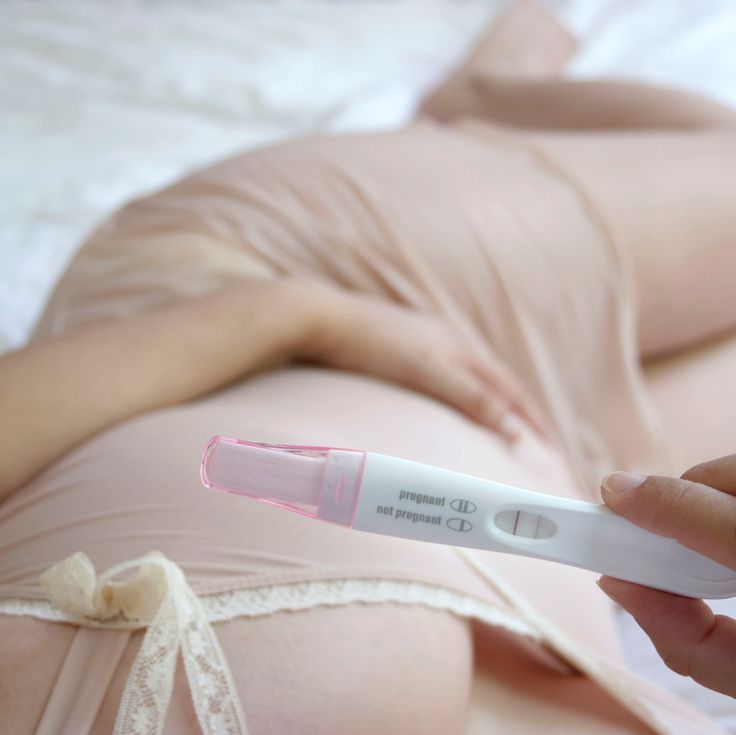 It is important to note that when taking a pregnancy test, a woman should know that even a weak plus sign or a second line indicates a positive result.
It is important to note that when taking a pregnancy test, a woman should know that even a weak plus sign or a second line indicates a positive result.
However, not all positive pregnancy tests mean that a woman is pregnant. There are some cases where a pregnancy test can give a false positive result:
Incorrect use of the test. When performing a home pregnancy test, it is important to follow the instructions carefully. Each brand has specific instructions, so it's important to read them carefully. For most tests, the result should be evaluated within 4-5 minutes after the test and no more than 10-30 minutes after that. If the pregnancy test is read after the recommended time, this may cause a weak second line to appear on the test - as a rule, this line appears after the urine has evaporated.
Previous miscarriage or abortion. After an abortion or miscarriage, a home pregnancy test may result in a false positive because the hCG levels in the woman's body may still be relatively high. As soon as a fertilized egg implants in the wall of the uterus, the body begins to secrete the hormone hCG. After a miscarriage or abortion, hCG levels begin to drop, but this happens slowly. As a rule, hCG decreases over a period of 9 to 35 days. The average time interval is about 19days. Taking a pregnancy test during this period may result in a false positive result.
As soon as a fertilized egg implants in the wall of the uterus, the body begins to secrete the hormone hCG. After a miscarriage or abortion, hCG levels begin to drop, but this happens slowly. As a rule, hCG decreases over a period of 9 to 35 days. The average time interval is about 19days. Taking a pregnancy test during this period may result in a false positive result.
In some cases, a miscarriage may not occur completely, as a result, tissue remains in the uterus that provokes the release of hCG. In this situation, surgery may be required to remove any retained products of conception.
Molar pregnancy. It is caused by genetic abnormalities at conception and leads to abnormal pregnancy. In a complete molar pregnancy, the embryo does not develop, but the placental tissue grows rapidly. Typically, this happens because the woman's eggs lack the maternal chromosome, and the egg is fertilized by one or two sperm. In a partial molar pregnancy, the egg is fertilized by 2 spermatozoa.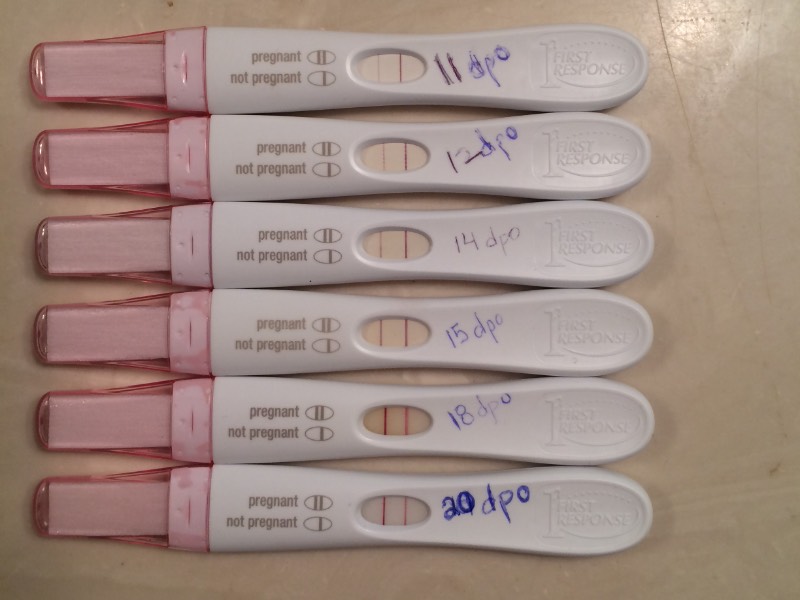 This results in an embryo containing 1 set of chromosomes from the mother and 2 sets of chromosomes from the father - 69chromosomes instead of the normal set of 46 chromosomes.
This results in an embryo containing 1 set of chromosomes from the mother and 2 sets of chromosomes from the father - 69chromosomes instead of the normal set of 46 chromosomes.
Instead of a normal placenta and embryo, placental tissue in molar pregnancy develops in a way that resembles a bunch of grapes. To eliminate such a pregnancy, an operation is required with careful monitoring of the level of hCG in a woman after the intervention. Sometimes a condition called persistent gestational trophoblastic disease can occur, which is associated with the continued growth of molar pregnancy products in the uterus. In this situation, surgery is required to remove the uterus or chemotherapy.
Medicines. Certain medications may cause a false positive pregnancy test result. These medicines include preparations with hCG as the active ingredient, which are often used to treat infertility. Yet most medications do not affect the results of home pregnancy tests.
Pathologies. Certain diseases and conditions can cause a woman's hCG levels to rise even if she is not pregnant. They include:
Certain diseases and conditions can cause a woman's hCG levels to rise even if she is not pregnant. They include:
- disorders affecting pituitary hormone levels, especially in perimenopausal or menopausal women;
- gestational trophoblastic disease;
- cancer of the ovary, bladder, kidney, liver, lung, colon, breast and stomach;
- phantom hCG, when certain body proteins bind to molecules in a pregnancy test kit, resulting in a false positive result;
- ovarian cysts;
- kidney disease or urinary tract infection.
If a pregnancy test indicates a positive result, it is important to notify your physician as further evaluation and testing will be required to confirm and monitor pregnancy.
Based on www.medicalnewstoday.com
When to do a pregnancy test? Maternity hospital Leleka | Blog
Pregnancy in the life of every woman is a significant event and most often unexpected.
But, even if the pregnancy came as a “surprise”, you must definitely confirm your suspicions or refute them. And you can do this with the help of an instant express pregnancy test, in a matter of seconds.
| Express pregnancy test is a very convenient, fast and inexpensive device that determines pregnancy (if any) as accurately as possible. The erroneous result is reduced to a minimum and is only 1%. |
The most informative are digital and tablet tests (the strip is placed on a plastic device with two "windows"). However, strip tests remain the most popular, which means that the price of the test does not affect the result.
If you have any doubts after the test, make an appointment with a gynecologist.
How the pregnancy test works
Despite the whole range of pregnancy tests, the principle of operation is the same for everyone - to determine the level of hCG (the first hormone of pregnancy) in the urine.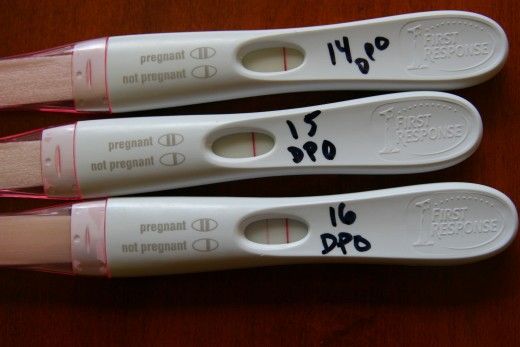
| hCG - secreted by the villi of the embryo from the period of attachment of the fertilized egg to the uterine wall. May be detected in the urine and blood of a pregnant woman. |
Pregnancy test procedure
Pregnancy test is performed no earlier than the first day of missed period or approximately 2 weeks after the expected day of conception. Until the zygote attaches to the wall of the uterus, hCG is not released, which means that before ten days of pregnancy, it is not advisable to carry out a test or any other tests.
At the beginning of the test, you should carefully study the instructions for its use. Although the principle of operation is always identical: one part of the test (paper) is immersed in a container with urine, the other (with a chemical indicator) determines the result in the form of red / blue stripes, the symbols “+” / “-” or the words “yes” / “no” ".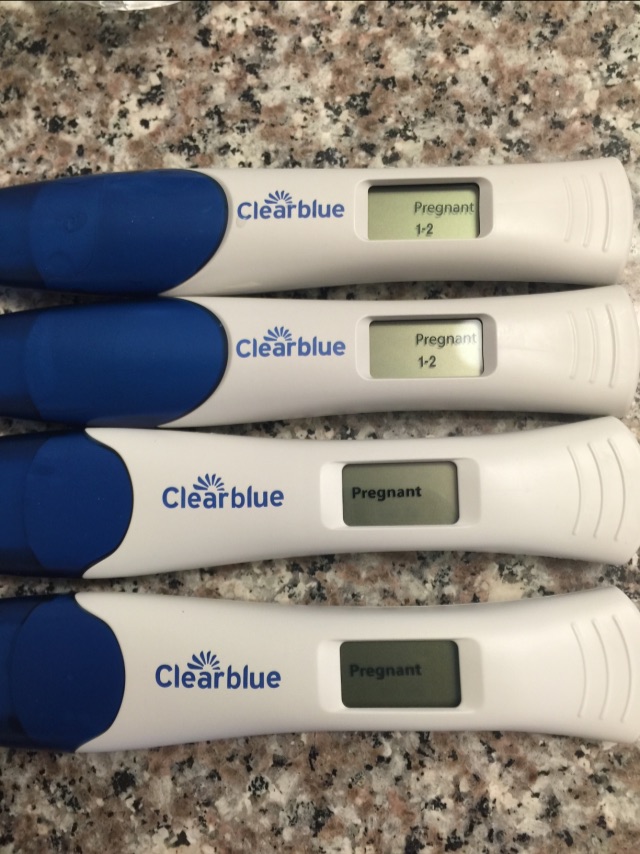 The result is evaluated after the time specified in the instructions (from 1 to 5 minutes).
The result is evaluated after the time specified in the instructions (from 1 to 5 minutes).
Sometimes there are mini-pipettes for metered distribution of urine in the tests, which are very convenient to use.
But putting the test under the urinary stream is not recommended, since this method can technically disrupt the express screening and give an error.
| You cannot rely on the result of a single test; for complete certainty, you need to repeat the rapid test in 1-3 days. If two stripes are determined each time, it is mandatory to make an appointment with a gynecologist. |
When to take a pregnancy test
In order not to be confused by numbers, dates and know exactly when it is appropriate to take a pregnancy test, you need to keep a calendar, control your well-being and know the basic process of how the egg is fertilized .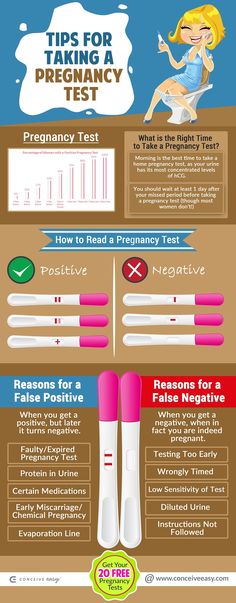
In every woman with a regular monthly cycle, the egg goes through several physiological stages of development, one of which is called “ovulation”.
Ovulation is the process where a mature egg is released from the ovary into the fallopian tube to join the sperm. If there is no sperm in the tube, the egg dies and menstruation occurs.
| Ovulation lasts approximately 2 days. All this time the egg is active. |
If during ovulation the spermatozoa were inside the woman's genitals and conception still occurred, the fertilized egg (zygote) begins to "move" into the uterine cavity, with the help of the ciliated epithelium and the muscles of the fallopian tube itself.
This whole process takes about 1 week.
After a fertilized egg enters the uterine cavity, it attaches there, hCG rises in the blood, cells divide and further development of the fetus occurs.
| The level of hCG (the first hormone of pregnancy) rises only after the fixation of a fertilized egg in the uterine cavity. Therefore, a reliable result of pregnancy can be obtained only on the seventh to tenth day of conception. In this case, the result must be supported by a doctor's opinion. |
Some rapid tests can determine the presence of the hormone as early as the fourth day, but it is still better to check after at least 1.5 weeks. Then the level of the hormone becomes high enough to confidently determine the condition of the woman.
| Delayed periods do not always indicate pregnancy, but it is better to immediately check the cause and take a test on the first day. |
When is a pregnancy test false?
Two strips on the test do not always cause delight in women, since pregnancy is not a cherished dream for all women, for most it is a surprise.
However, if you really do not plan a child and your test suddenly becomes “striped”, do not rush to panic, since a result error is not ruled out here.
False-positive or false-negative responses can range from a technical failure of a screening test to the identification of serious gynecological pathologies.
As you can see, pregnancy is not the most “terrible” thing that a test can determine, so we once again emphasize the importance of a gynecological examination.
| Gynecologists of the private maternity hospital "Leleka" strongly recommend not to be limited to the results of a rapid test to establish pregnancy.
Since today there is a growing trend of ectopic pregnancies, which lead to serious complications and gynecological pathologies in the future. |
Be that as it may, a positive test result is only the first step towards determining pregnancy. The second step is a visit to the gynecologist, who must confirm / refute the information received. Since there are situations when express screening gives a false positive answer.
Main reasons for a false positive result
A false positive result is a result that indicates the presence of pregnancy, in the absence of it.
Causes:
1. Incorrect express test.
Incorrect use of the test is the main cause of a false positive response. Therefore, you always need to read the instructions and follow the specified algorithm of actions. The evaluation of the result should be carried out strictly within the specified time range, from 3 to 10 minutes. After this period, a weak second strip may appear on the test (due to evaporation of urine), and the woman will perceive the result as a pregnancy.
2.
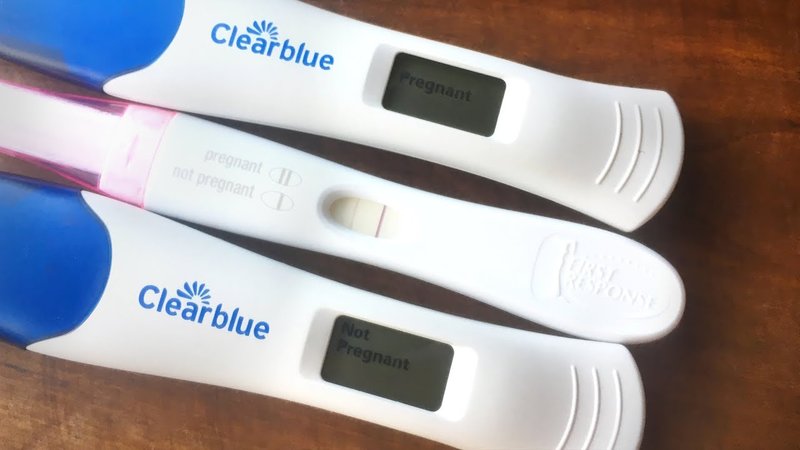 Marriage.
Marriage. A defective test is a very rare occurrence, but no one is immune from such a situation. Knowing this, women buy several tests from different brands and thus the problem is leveled.
3. Postpartum period.
Pregnancy test remains positive throughout pregnancy and 3-4 weeks after delivery. Therefore, if the test after the recent birth of a child shows a positive answer, and you are not planning children of the same age, you should not worry. However, you still need to check with your doctor about the absence of pregnancy.
4. Miscarriage, abortion.
After a miscarriage, miscarriage or medical abortion, the level of hCG cannot immediately decrease, it takes time. And, as a rule, this process takes from 2 to 4 weeks. Therefore, doing a pregnancy test during this period simply does not make sense, since the result will be false positive.
| If in doubt, a blood test for hCG levels or a follow-up ultrasound of the abdomen should be done. |
5. Preparation for IVF.
Some women dream of pregnancy so much that they take tests even when they don't have to. As, for example, when preparing for IVF.
During this period, ovulation is stimulated with hormonal preparations, which also increase the level of hCG, although there is no pregnancy itself yet. Therefore, a pregnancy test done during this period can misinform a woman.
6. Oncopathology.
Sometimes a positive pregnancy test, in its absence, indicates serious pathological processes that increase the level of hCG. These are ovarian tumors, lung, brain, breast or stomach cancer.
| To dispel all suspicions and fears, with a positive pregnancy test result, you should immediately contact a gynecologist to rule out ectopic pregnancy and oncopathology. |
Main causes of a false negative test
A false negative is a result that indicates no pregnancy, if any.
Causes:
- Fertilization occurred before the start of menstruation, and the level of hCG did not have time to rise to the desired concentration.
- There is a threat of miscarriage.
- The woman is taking diuretics (diuretics).
- Technical damage to the test.
If a pregnancy test shows a negative result, but the woman has specific symptoms of pregnancy (morning sickness, dizziness, frequent urination, pain in the lower abdomen and chest), you need to see a doctor.
What to do if in doubt?
There are situations that make a woman doubt the correctness of a pregnancy test. For example, different tests give different results, spotting is present (similar to menstruation), screening gave a positive response, and there are no specific symptoms of pregnancy.
What to do in this case?
- Do not look for the cause on your own, but go for a consultation with a gynecologist and approach the solution of the problem in a comprehensive manner.
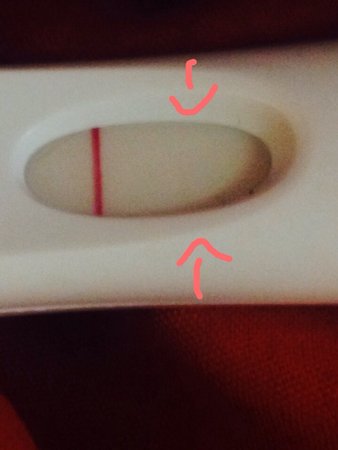
- Do not dispose of unwanted and unconfirmed pregnancies yourself.
- Find the exact reason why the test showed a false positive result in the absence of pregnancy.
| Note! Leading gynecologists of the private maternity center "Leleka" strongly recommend that after passing the test with a positive response, immediately contact a medical institution. Even if you do not plan to give birth to a child, pregnancy in any case must be confirmed or denied. You should not rely only on the test result, and in no case should you resort to criminal abortions, buy the “necessary” pills in a pharmacy on your own, use folk methods to terminate a pregnancy. All this is fraught with serious consequences and complications, even death. |






